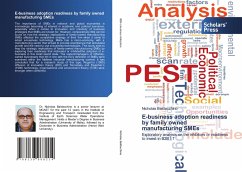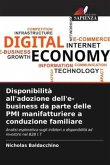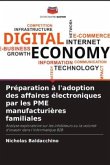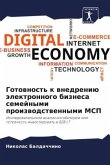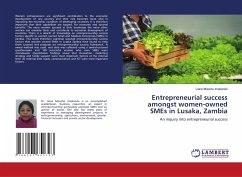The importance of SMEs in national and global economies is increasingly becoming of interest in academic and political scenarios, especially when it comes to innovation and creativity of business strategies that SMEs are known for. However, comparatively little can be found on how the strategic implications of family-owned manufacturing SMEs affected the competitive strategy of their firm when it came to adopt e-business technology. Malta has a micro-economy, with a manufacturing sector that strived to provide anambience that stimulated growth and the need to use e-business technologies. This study aims to map the strategic implications of family-owned manufacturing SMEs by exploring their readiness that motivated or inhibitedthe adoption of e-business in this small island state. The owners/managers of 20family-owned businesses that fell in line with the EU's definition of SMEs were examined within the Maltese industrial manufacturing context. It was concluded that for a researchstudy of this type, Rogers's (1995) diffusion of innovation theory (DOI) and Tornatzsky and Fleischer's (1990) technology, organisational and environment theory (TOE) were stronger when combined.
Bitte wählen Sie Ihr Anliegen aus.
Rechnungen
Retourenschein anfordern
Bestellstatus
Storno

